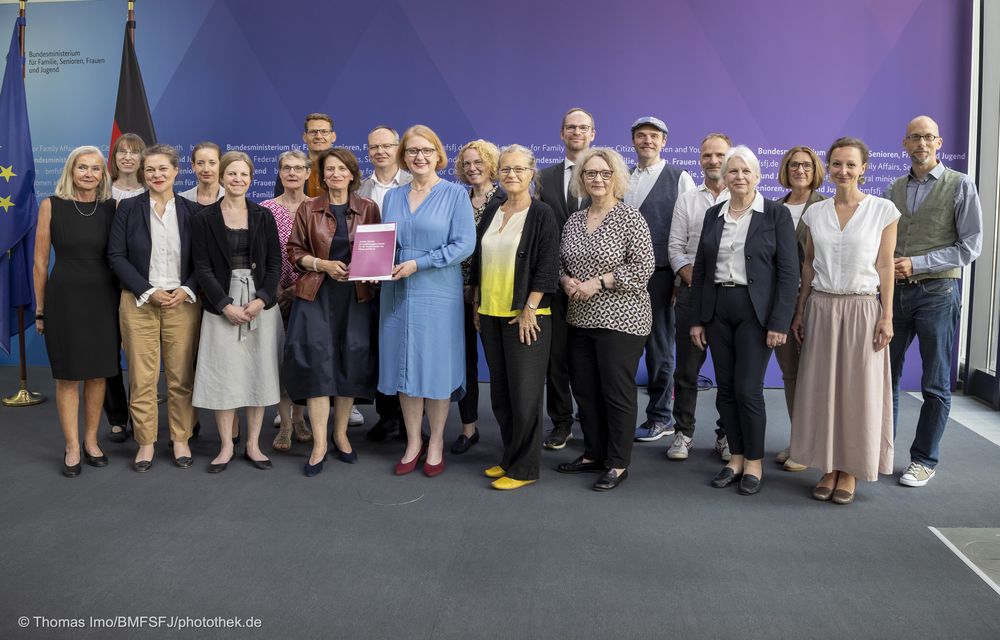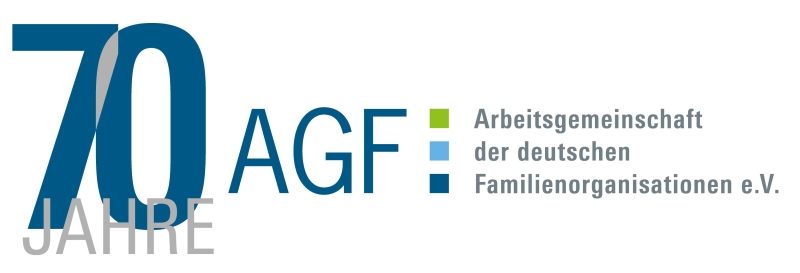Berlin, 13 July 2023 – On the occasion of the presentation of the 2nd overall report of the Advisory Council, the family organisations in their statement point out the great commitment of families in caring for relatives in need of care. They emphasise the great importance of introducing a 36-month family care leave as it is mentioned in the report, which includes an appropriate monetary compensation, as well as the further expansion of professional care structures. Both are prerequisites for the reconciliation of family and work and would be a big step towards the recognition of the care services provided by families.
“For many families, long term care in the family is a matter of solidarity and is taken on willingly and voluntarily. But at the same time it is often very time-consuming and physically and psychologically demanding. If the caregivers have job, this inevitably leads to conflicts,” states Dr. Klaus Zeh, Chairman of the Association of German Family Organisations (AGF) and emphasises that the current regulations for this fail to achieve their goals: “So far, there are only insufficient possibilities, namely the caregiver leave and family caregiver leave. In particular, the interest-free loan offered by the state for reducing professional work does not show sufficient relief effects, is not practicable and is therefore hardly taken up. A socially fair designed, financially supported family care leave is therefore the right way forward.”
The associations emphasise in their statement that even the introduction of a new 36-month family care leave with adequate monetary compensation would only partly contribute to the necessary relief. In addition, the expansion and improvement of professional care structures is needed to relieve the burden on families.
The family organisations point out that about 84% of the ca. five million people in need of care in Germany live in a home environment. More than half (2.55 million) are cared for exclusively informally by relatives, most of whom are women. Another 1.05 million people in need of care are fully or partially cared for in their households by outpatient nursing and care services. Even among those in need of care who receive professional support, families make a large contribution to the care of their relatives. The main caregivers often reduce their working hours or leave the labour force completely. However, when “handling “solving” the reconciliation problems in this way, the direct and indirect costs for the families are enormous. As a result, family incomes fall and family carers face lower wages (if they return to their job) and lower pension benefits in the long run.
“The current report provides policymakers with a blueprint that only needs to be taken up by the federal government. This is not only necessary from the point of view of families, but also a social investment: in view of the demographic development and the shortage of skilled workers, the care system would collapse without the extensive takeover of home care. But the withdrawal of caring relatives from their employment would also have far-reaching negative consequences. Both would result in an enormous burden for the state and the economy,” emphasises Sven Iversen, AGF Managing Director.
In its statement, the AGF addresses various aspects of the 2nd General Report of the Advisory Council.


